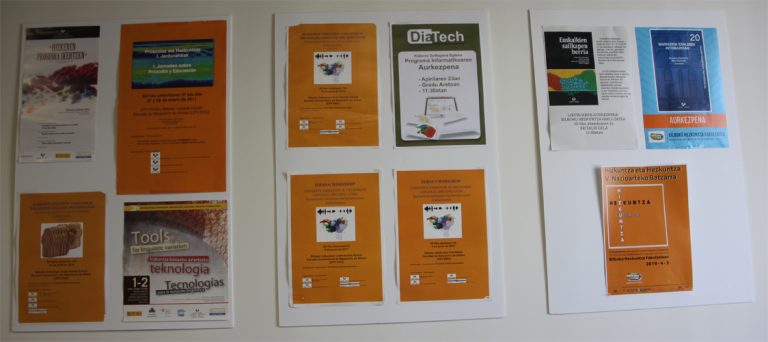Research lines
Oral language: study and development of prosodic competence
Prosody as the set of suprasegmental elements of oral language is an important line of research in this group. In relation to prosody, we perform three types of studies, wich are phonological, phonetic and perceptual studies. The EUDIA group describes the suprasegmental characteristics in both reading aloud and spontaneous language with the aim of creating an accepted oral pattern of reading aloud and spontaneous narration, which can be used as a model in different professional fields, such as the field of teaching or communication. In addition, it studies how the suprasegmental and gestural elements influence the comprehension, perception and pragmatic function of texts. Finally, it has opened a new path of study on the characterization of aprosody and its intervention.
Linguistic Variation
The EUDIA Research Team is a group set up to conduct research into Basque Language (Euskara) variation. Basically, it sets out to conduct research into Basque change or variation, to specify the social and other factors that are responsible for this variation, and to create tools for accomplishing research into variation. So an endeavour will be made to research geolinguistic or diatopic variation, as well as sociolinguistic or diastratic or diaphasic variation.
Variation in many fields of language are taken into consideration: lexical, phonological, morphological as well syntactic; on a sentence level as well as on a discourse level; linguistic as well as paralinguistic variation.
Language acquisition
As teachers and parents we are aware of the importance of knowing the ontogenesis of language during the first years of life in order to give a better response throughout the child’s development. However, language is accompanied by other communicative elements such as gestures and looks, among others; so, our objective is based on knowing the linguistic development at early ages framed in a multimodal analysis of the communicative act.

